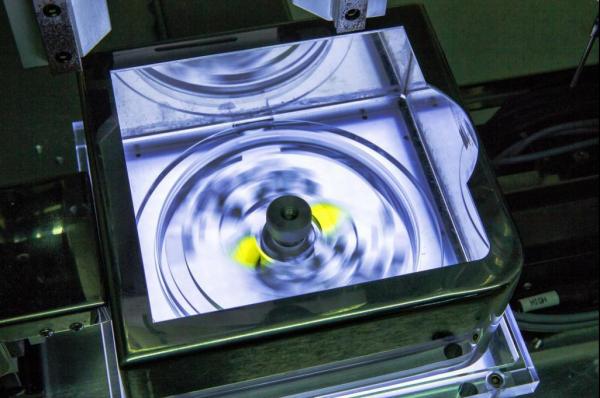
The Exodisc, pictured, can effectively isolate cancer-causing substances in the urine or blood. (Credit: UNIST)
Researchers from the Ulsan National Institute of Science and Technology (UNIST), in South Korea have developed a new method to identify cancer-causing substances in urine, which could lead to earlier cancer diagnosis.
Professor Yoon-Kyoung Cho, of Life Science department at UNIST, and her team developed an integrated centrifugal microfluidic platform called Exodisc to isolate extracellular vesicles (EVs), from urine.
EVs are cell-derived nanovesicles found in most types of body fluids that play a critical role in intercellular communication and transport biological signals for regulating diverse cellular functions.
Current methods of EV isolation are time consuming and complicated procedures, such as ultracentrifugation, or UC, the most common form in use.
The Exodisc is a lab-on-a-disc platform for rapid, size-selective, and efficient isolation and analysis of nanoscale EVs derived from raw biological samples such as urine.
“The Exodisc is composed of two independent filtration units [20nm and 600 nm in size] within a disk-shaped chip to enable the processing of two different samples simultaneously,” Hyun-Kyung Woo of UNIST, says in a press release. “Upon spinning the disc, the urine sample is transferred through two integrated nanofilters, allowing for the enrichment of urinary EVs within the size range of 20 to 600 nm.”
In tests, the direct detection of urinary EVs from patients with bladder cancer was successful.
“Using Exodisc, it is possible to isolate EVs from raw samples within 30 minutes,” Cho says. “The process of passing the filter through centrifugal force is automatically carried out, effectively recovering the enriched EVs.”
